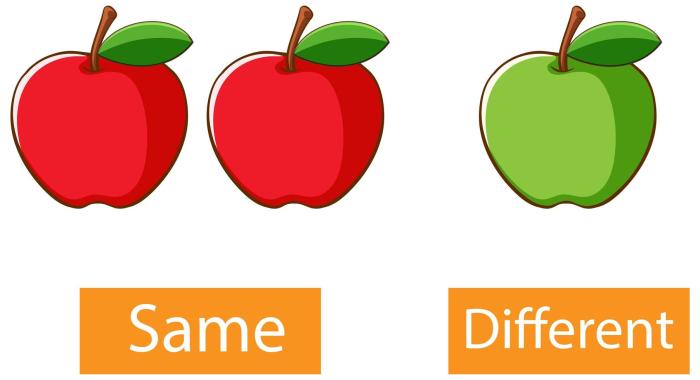Same old same old passover crossword – The “Same Old, Same Old” Passover Crossword: A Journey Through Tradition and Innovation. Delving into the realm of Passover crosswords, this exploration unveils the profound significance these puzzles hold within Jewish culture and traditions. From unlocking the depths of Passover’s rich history to fostering a deeper understanding of its customs, Passover crosswords serve as a captivating medium for preserving and transmitting the essence of this sacred holiday.
Yet, amidst the joy of solving these puzzles, a lingering question arises: have Passover crosswords become stagnant, confined to a repetitive cycle of familiar themes and motifs? This analysis delves into the potential reasons behind this perception, identifying opportunities for innovation and diversification that can revitalize the Passover crossword experience.
Passover Crossword

Crosswords have become a beloved tradition during Passover, offering a unique and engaging way to celebrate and learn about Jewish culture and traditions. These puzzles are not only a source of entertainment but also a valuable tool for fostering a deeper understanding of the holiday’s history, customs, and symbolism.
Passover-Themed Crosswords
Passover-themed crosswords typically feature clues related to the Exodus story, Jewish holidays, biblical figures, and traditional foods. By solving these puzzles, participants can brush up on their knowledge of Jewish history and customs while also honing their problem-solving skills.For example, one Passover crossword might include clues such as:
A unleavened bread eaten during Passover (Answer
Matzah)
The ten plagues sent upon Egypt (Answer
Frogs, Locusts, Darkness, etc.)
The leader of the Israelites during the Exodus (Answer
Moses)These puzzles provide a fun and interactive way to reinforce important aspects of the Passover story and Jewish tradition.
Thematic Exploration

Passover crosswords have often been criticized for their perceived repetitiveness. Several factors may contribute to this perception, including the limited scope of Passover-related themes and motifs and the reliance on traditional crossword puzzle conventions.
Common themes in Passover crosswords include the Exodus from Egypt, the Ten Plagues, and the Passover Seder. While these themes are central to the Passover story, they can become repetitive when used exclusively in crossword puzzles. Additionally, the use of traditional crossword puzzle conventions, such as cryptic clues and wordplay, can further limit the scope of possible clues and answers.
Opportunities for Innovation, Same old same old passover crossword
Despite these challenges, there are several opportunities for innovation and diversification in Passover crossword puzzles. One approach is to explore new themes and motifs related to Passover. For example, a crossword puzzle could focus on the historical context of Passover, the cultural traditions associated with the holiday, or the ethical and spiritual lessons that can be drawn from the Passover story.
Another approach is to experiment with different crossword puzzle formats. For example, a crossword puzzle could be designed as a narrative, with clues that tell a story about the Exodus from Egypt. Alternatively, a crossword puzzle could be designed as a game, with clues that challenge solvers to solve puzzles or answer trivia questions.
By exploring new themes and motifs and experimenting with different formats, crossword puzzle creators can create Passover crosswords that are both engaging and educational.
Enhancing Engagement

Interactive elements can significantly enhance the Passover crossword experience, fostering engagement and making the puzzle-solving process more enjoyable and immersive.
Incorporating multimedia elements, such as videos or audio clips, can provide additional context and enhance the educational value of the crossword. For instance, videos can showcase historical or cultural aspects of Passover, while audio clips can feature traditional songs or readings related to the holiday.
Online Collaboration and Social Sharing
Online collaboration and social sharing features can further enhance the engagement factor. Enabling users to collaborate on solving the crossword with friends or family members can foster a sense of community and shared accomplishment. Additionally, allowing users to share their completed puzzles on social media platforms can promote the crossword and encourage others to participate.
Accessibility and Inclusivity: Same Old Same Old Passover Crossword

Making Passover crosswords accessible to a wide audience is paramount to ensure that everyone can enjoy and participate in this engaging activity. By incorporating varying levels of difficulty, providing clear instructions, and considering diverse backgrounds and perspectives, we can create puzzles that are inclusive and accessible to all.
Levels of Difficulty
Offering crosswords with varying levels of difficulty allows individuals with different skill levels to participate. Easy puzzles can introduce basic concepts and vocabulary, while more challenging puzzles can provide a greater sense of accomplishment and engagement for experienced solvers.
Clear Instructions
Providing clear and concise instructions is essential for accessibility. These instructions should include information on how to solve the puzzle, any special rules or conventions, and a glossary of unfamiliar terms. By making the rules and expectations transparent, solvers can approach the puzzle with confidence.
Diversity and Inclusion
Ensuring that crosswords are inclusive of diverse backgrounds and perspectives promotes a sense of belonging and representation. This can be achieved by incorporating clues that reflect a range of cultural experiences, historical events, and perspectives. By doing so, we can create puzzles that resonate with a broader audience and foster a more inclusive and welcoming environment.
FAQ Guide
Why are Passover crosswords often perceived as repetitive?
Common themes and motifs, lack of innovation, and limited exploration of diverse perspectives may contribute to this perception.
How can we enhance the engagement of Passover crosswords?
Incorporating multimedia elements, promoting online collaboration, and introducing interactive features can increase engagement and appeal to a wider audience.
What is the importance of accessibility and inclusivity in Passover crosswords?
Ensuring puzzles are accessible to individuals of varying abilities and backgrounds fosters a sense of belonging and allows everyone to participate in the Passover tradition.
